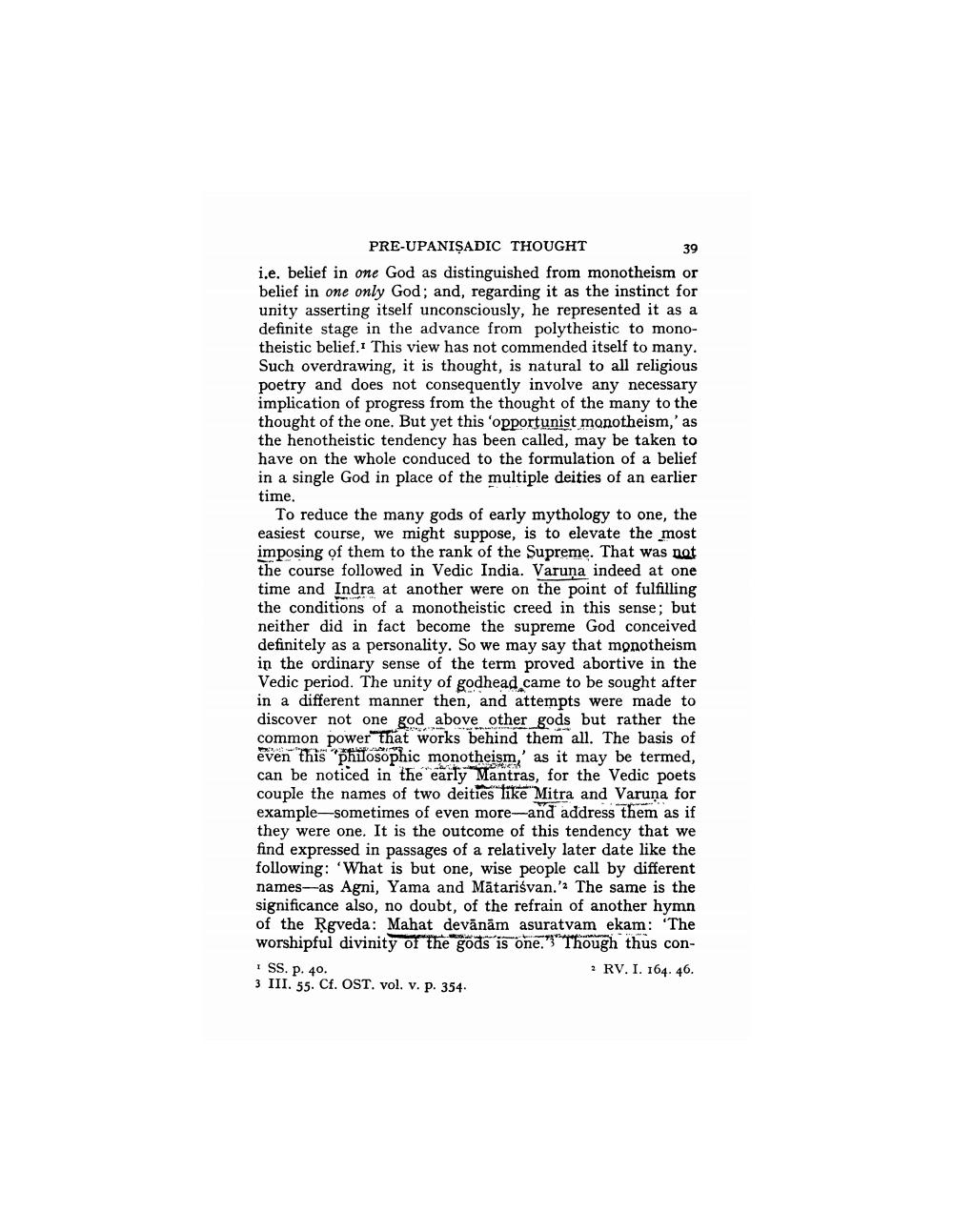________________
39
PRE-UPANIŞADIC THOUGHT i.e. belief in one God as distinguished from monotheism or belief in one only God; and, regarding it as the instinct for unity asserting itself unconsciously, he represented it as a definite stage in the advance from polytheistic to monotheistic belief. This view has not commended itself to many. Such overdrawing, it is thought, is natural to all religious poetry and does not consequently involve any necessary implication of progress from the thought of the many to the thought of the one. But yet this 'opportunist monotheism,' as the henotheistic tendency has been called, may be taken to have on the whole conduced to the formulation of a belief in a single God in place of the multiple deities of an earlier time.
To reduce the many gods of early mythology to one, the easiest course, we might suppose, is to elevate the most imposing of them to the rank of the Supreme. That was not the course followed in Vedic India. Varuņa indeed at one time and Indra at another were on the point of fulfilling the conditions of a monotheistic creed in this sense; but neither did in fact become the supreme God conceived definitely as a personality. So we may say that monotheism in the ordinary sense of the term proved abortive in the Vedic period. The unity of godhead came to be sought after in a different manner then, and attempts were made to discover not one god above other gods but rather the common power that works behind them all. The basis of even this philosophic monotheism,' as it may be termed, can be noticed in the early Mantras. for the Vedic poets couple the names of two deities like Mitra and Varuņa for example-sometimes of even more--and address them as if they were one. It is the outcome of this tendency that we find expressed in passages of a relatively later date like the following: What is but one, wise people call by different names--as Agni, Yama and Mātarisvan.'The same is the significance also, no doubt, of the refrain of another hymn of the Rgveda: Mahat devānām asuratvam ekam: 'The worshipful divinity or the gods is one." Though thus con1 SS. P. 40.
? RV. I. 164.46. 3 III. 55. Cf. OST. vol. v. p. 354.




